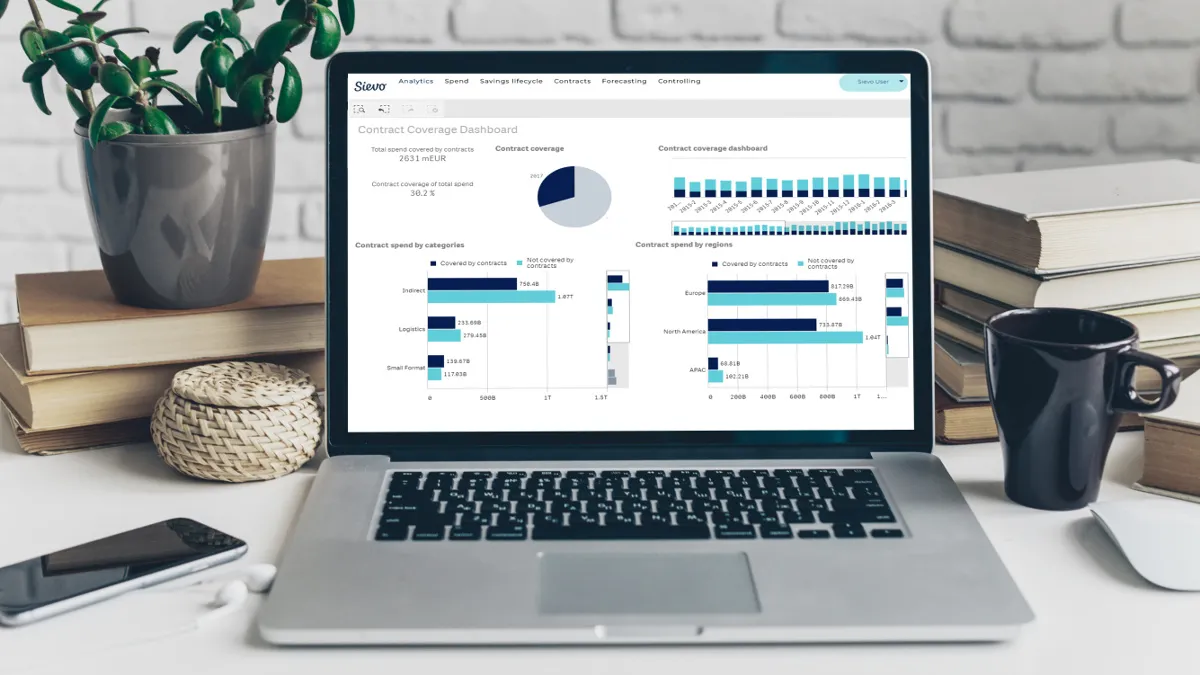Dive Brief:
- Sixty-six percent of senior procurement decision managers said digital skills will overtake people skills in supplier negotiations in the coming years, according to a recent survey of 500 procurement leaders conducted by Barclaycard and shared with Supply Chain Dive via email.
- There was broad agreement that negotiation skills are critical, but 62% of respondents over age 55 prefered face-to-face interactions versus 33% of 18 to 34-year olds. This is largely due to the growing role of technology in procurement in the form of video-conferencing with international partners to big data analytics offering improved insights into contracts and spending, according to the study.
- While there will be a need for in-person negotiations, "it’s clear that the art of negotiation is evolving as a new generation of decision makers take the helm," Paul Fisher, program director of the Oxford Programme on Negotiation at the University of Oxford's Saïd Business School, wrote in the report. Having accurate and timely internal data and external data from suppliers and partners is critical to optimal decision-making.
Dive Insight:
Data analytics has become a key element of procurement's growing role in supply chain strategy in recent years, Evert Karsen, the vice president of procurement at Cimpress, a custom product branding company, told Supply Chain Dive in an interview.
Having historical data in a central system on pricing, contracts and even less quantifiable information on business unit goals and supplier relationships is not only beneficial for negotiations and budgeting but has a direct connection to a company's bottom line.
Karsen and his team saw this first hand as Cimpress revamped its procurement function and centralized data from its global brands into a new digital system. The system allowed the company to cut costs by 11% over the course of a year by centrally negotiating bulk contracts for the whole organization while leaving more market-specific contracts to the subsidiaries.
Luckily, while the digital tools on the market tend to be user-friendly, they do require some training and, more importantly, the discipline to use them instead of reverting back into old habits such as sending one-off emails to suppliers or not tracking interactions in the central system, Karsen said. These can build up and come back to haunt a procurement team if a key supplier contact leaves their company or a new relationship manager takes over an account. Access to that data could be lost.
"With time and cost pressures ... more and more negotiations are taking place via emails, video conferencing and WhatsApp," Fisher wrote in the report. It's important then for companies to accept these tools are here to stay and leverage them to generate data on offers, counter-offers and supplier operations, he continued.
Language barriers are an additional element of consideration for procurement in supply chains with global sourcing networks. Technology can pick up where people skills might be less effective.
As interactions take place in an increasingly digital environment "we think everybody speaks English and that's not always true," Karsen said. "But not everybody understands always what you're asking for, so many times you get answers many different ways. And that might cause confusion in the language or mean something bad. So this [technology] is a way to make sure things are translatable."
Technology replacing the need for negotiation skills is a ways off, Karsen said.
"I may be a bit old school but I believe strongly in personal contact. And the digital tools should be the thing in the background, that make sure information is comparable and accurate and everything else," he said.
Karsen said Cimpress has pursued a hybrid training system of online courses and in-person practice where younger talent can learn data skills and negotiation tactics virtually and practice them in sessions with veteran procurement leaders at the company.
This is also becoming important for companies looking to retain talent, he said, as more young professionals are recognizing opportunities for growth in the procurement industry and are looking for firms that can combine new technologies with traditional negotiation skills.
This story was first published in our weekly newsletter, Supply Chain Dive: Procurement. Sign up here.














